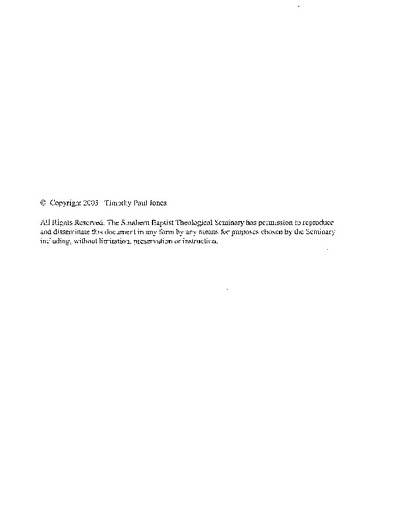An analysis of the relationship between Fowlerian stage-development and self-assessed maturity in Christian faithfulness among evangelical Christians
Abstract
The purpose of this descriptive-quantitative study was to analyze the relationship between individuals' development according to Fowler's stages and the self-assessed maturity of their faithfulness to Jesus Christ.
Based on a review of significant texts from the Judeo-Christian Scriptures and from church history, the researcher concluded that faith as understood by the earliest Christians--which the researcher has termed "biblical-orthodox faith"--and the reality to which James W. Fowler referred as "faith" are not the same phenomenon. Biblical-orthodox faith entails two inseparable dimensions, faith-content and faith-commitment. The validity and vitality of biblical-orthodox faith may be assessed by measuring individuals' maturity in Christian faithfulness. Fowler's understanding of faith--described in this research as "other-awareness"--more closely relates to the phenomenon described in the writings of Friedrich D. E. Schleiermacher as das schlechthinnigen Abhängigkeitsgefuehl .
The researcher created the Fowlerian Stage-Development Survey (FSDS) to assess Fowlerian stage-development in the sample of 348 evangelical Christians. The alpha reliability coefficient for the FSDS was 0.6941. The Shepherd Scale--a standardized instrument with two sub-scales, the Christian Belief sub-scale and the Christian Walk sub-scale--was utilized to assess individuals' maturity in Christian faithfulness.
ANOVA indicated that no significant relationship existed between Fowlerian stage-development and maturity in Christian faithfulness as assessed by the Shepherd Scale. Both qualitative and quantitative analysis suggested that Fowler's Stages 2 through 4 describe the development of the Jungian Ego, while Stage 5 describes the development of the Jungian Self. These findings suggest that Christian spiritual formation comprises three separate "tracks"--Ego-development, Self-actualization, and Christian faith-development. In light of his research findings, the researcher constructed an integrative model of spiritual development that incorporated Ego-development, Self-actualization, and Christian faith-development into a single model while recognizing that Christian faith-development and Fowlerian stage-development operate on separate structural-developmental tracks.

